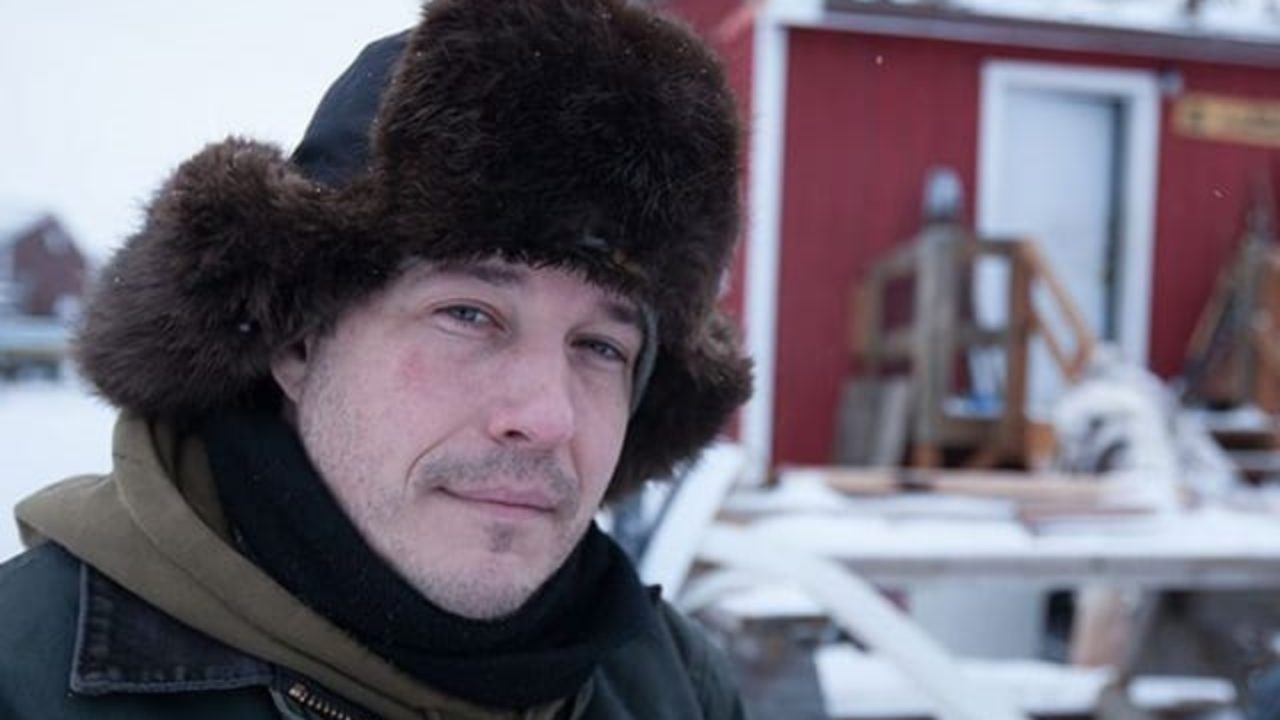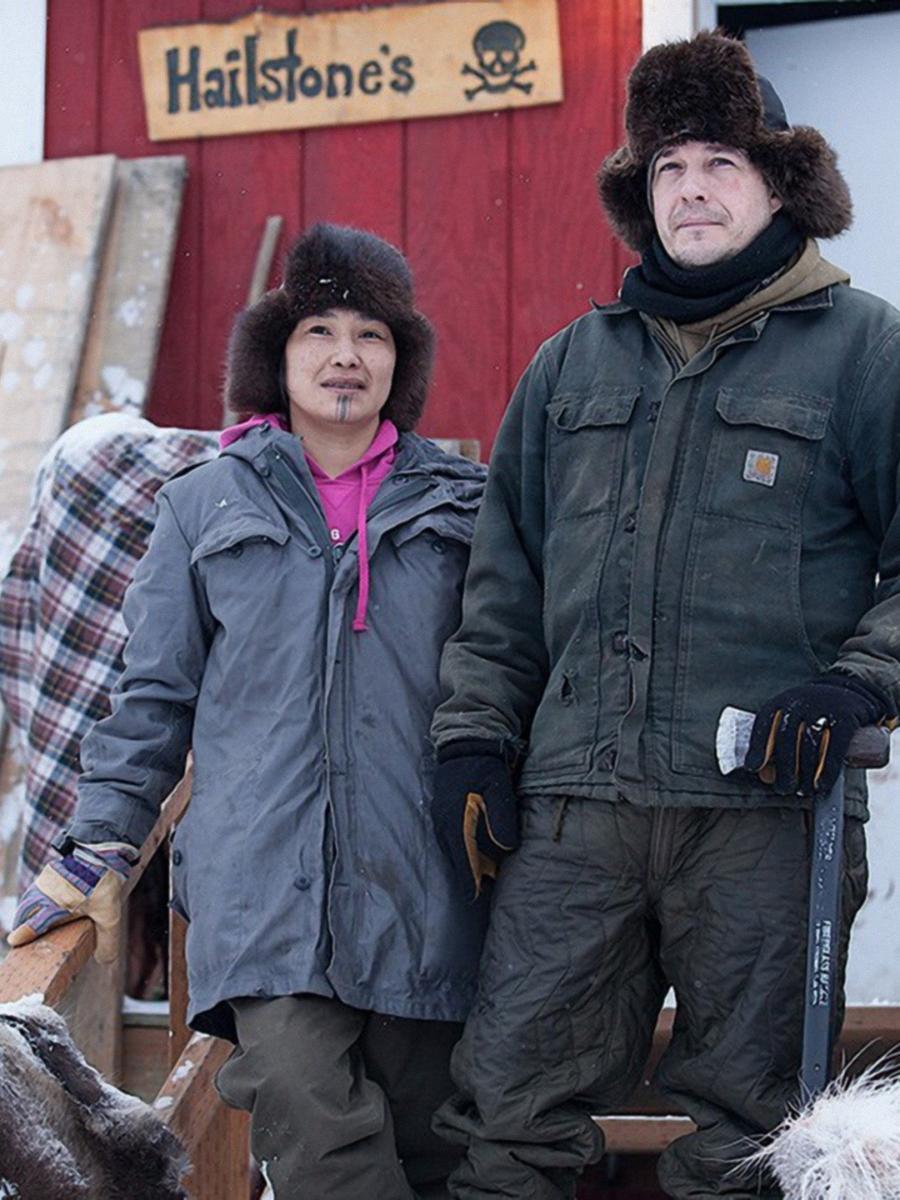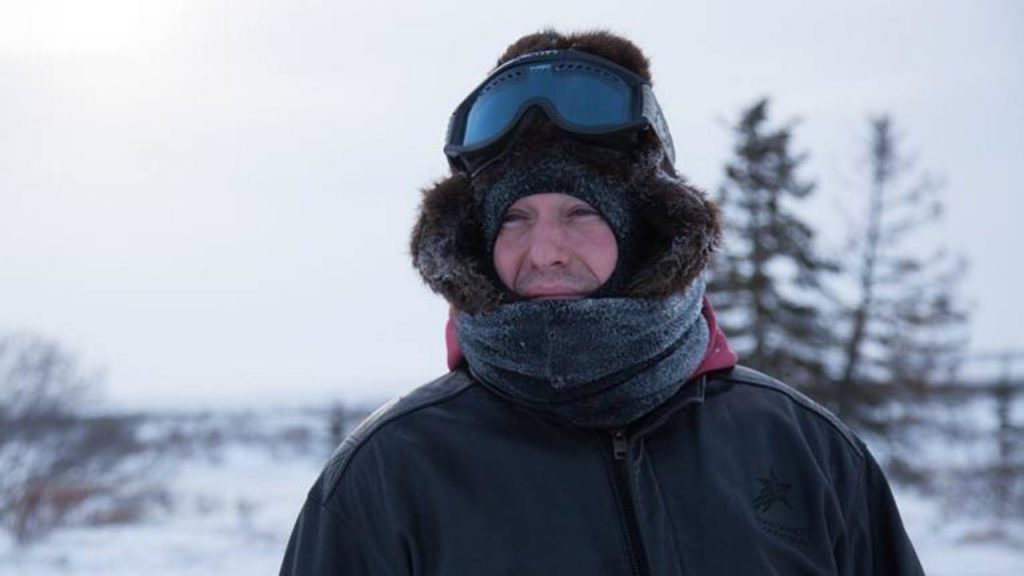What did Chip Hailstone go to jail for?
Chip Hailstone is an American reality television personality and trapper who was convicted of violating the Lacey Act, which prohibits the trafficking of illegally taken wildlife, and sentenced to 38 months in prison in 2021.
Hailstone is best known for his appearances on the National Geographic reality television series Life Below Zero, which follows the lives of several families living in remote parts of Alaska. In 2015, he was arrested for violating the Lacey Act after selling two illegally taken Dall sheep to an undercover agent. He was indicted on 12 counts related to the sale of the sheep, including conspiracy, money laundering, and making false statements to federal agents.
Hailstone pleaded guilty to one count of conspiracy to violate the Lacey Act and was sentenced to 38 months in prison. He was also ordered to pay a $10,000 fine and forfeit his trapping equipment.
In addition to his conviction for violating the Lacey Act, Hailstone has also been arrested for other offenses, including driving under the influence of alcohol and disorderly conduct.
Key Points
Chip Hailstone is a reality television personality and trapper who was convicted of violating the Lacey Act in 2021.
Hailstone was sentenced to 38 months in prison for selling two illegally taken Dall sheep to an undercover agent.
In addition to his conviction for violating the Lacey Act, Hailstone has also been arrested for other offenses, including driving under the influence of alcohol and disorderly conduct.
What did Chip Hailstone go to jail for?
Chip Hailstone, a reality television personality and trapper, was convicted of violating the Lacey Act, which prohibits the trafficking of illegally taken wildlife, and sentenced to 38 months in prison in 2021.
- Illegal wildlife trafficking: Hailstone was convicted of selling two illegally taken Dall sheep to an undercover agent.
- Lacey Act violation: The Lacey Act prohibits the trafficking of illegally taken wildlife, and Hailstone's sale of the sheep violated this law.
- Prison sentence: Hailstone was sentenced to 38 months in prison for his crime.
- Reality television personality: Hailstone is best known for his appearances on the National Geographic reality television series Life Below Zero.
- Trapper: Hailstone is a trapper who lives in remote Alaska.
- Other arrests: Hailstone has also been arrested for other offenses, including driving under the influence of alcohol and disorderly conduct.
- Controversial figure: Hailstone is a controversial figure, and his conviction has sparked debate about the legality of trapping and the ethics of reality television.
Hailstone's case highlights the importance of protecting wildlife and the consequences of violating environmental laws. It also raises questions about the role of reality television in promoting dangerous or unethical behavior.
Illegal wildlife trafficking
Chip Hailstone's conviction for illegally trafficking wildlife is a serious crime with far-reaching implications. The illegal wildlife trade is a major threat to endangered species and can have devastating consequences for ecosystems around the world.
- Environmental impact: The illegal wildlife trade is a major driver of species extinction. When animals are taken from their natural habitats, it can disrupt ecosystems and lead to the decline of other species that depend on them.
- Economic impact: The illegal wildlife trade is a multi-billion dollar industry that fuels corruption and organized crime. It also deprives local communities of revenue that could be used for conservation efforts.
- Public health impact: The illegal wildlife trade can also pose a public health risk. Animals that are trafficked can carry diseases that can be transmitted to humans.
- Ethical concerns: The illegal wildlife trade is a cruel and inhumane practice that causes immense suffering to animals.
Hailstone's conviction sends a clear message that the illegal wildlife trade will not be tolerated. It is a victory for conservationists and for all those who care about the well-being of animals.
Lacey Act violation
The Lacey Act is a federal law that prohibits the trafficking of illegally taken wildlife. It is a critical tool for protecting endangered species and ensuring the sustainability of wildlife populations.
- Role of the Lacey Act: The Lacey Act plays a vital role in protecting wildlife by prohibiting the interstate and foreign trade of illegally taken wildlife. This includes animals that are hunted, trapped, or killed in violation of state or federal laws.
- Hailstone's violation: Chip Hailstone violated the Lacey Act by selling two illegally taken Dall sheep to an undercover agent. This was a serious crime that could have resulted in the extinction of the Dall sheep population.
- Consequences of violating the Lacey Act: The penalties for violating the Lacey Act can be severe, including fines and imprisonment. In Hailstone's case, he was sentenced to 38 months in prison.
- Importance of protecting wildlife: The Lacey Act is an important tool for protecting wildlife. It helps to ensure that animals are taken legally and sustainably, and that wildlife populations are not depleted.
Chip Hailstone's conviction for violating the Lacey Act is a reminder of the importance of protecting wildlife. The Lacey Act is a powerful tool that can be used to combat the illegal wildlife trade and ensure the survival of our planet's wildlife.
Prison sentence
Chip Hailstone's prison sentence is a significant aspect of his story, and it highlights the serious consequences of violating the Lacey Act.
- Deterrence: Hailstone's prison sentence sends a clear message that the illegal wildlife trade will not be tolerated. It serves as a deterrent to others who may be considering engaging in similar activities.
- Punishment: Hailstone's sentence is also a form of punishment for his crime. He has been deprived of his freedom and will spend the next several years in prison.
- Rehabilitation: Prison can also provide an opportunity for Hailstone to rehabilitate himself. He may learn new skills and develop a new perspective on life.
- Public safety: Hailstone's removal from society protects the public from further harm. He is no longer able to engage in illegal activities that could put others at risk.
Hailstone's prison sentence is a reminder that there are serious consequences for violating the law. It is also a reminder of the importance of protecting wildlife and ensuring the sustainability of our planet's ecosystems.
Reality television personality
Chip Hailstone's status as a reality television personality is closely connected to his conviction for violating the Lacey Act. His appearances on Life Below Zero, which depicted his life as a trapper in remote Alaska, contributed to his public persona and made him a recognizable figure.
This public persona may have played a role in the investigation and prosecution of Hailstone's crime. His high profile may have made him a more visible target for law enforcement, and it may have also influenced the public's perception of his case.
Furthermore, Hailstone's status as a reality television personality may have impacted his sentence. The judge in his case may have considered the public attention surrounding his case when determining an appropriate sentence.
The connection between Hailstone's reality television career and his conviction for violating the Lacey Act is a complex one. It is a reminder that the actions of public figures can have serious consequences, and that even those who are in the public eye are not above the law.
Trapper
Chip Hailstone's occupation as a trapper is closely connected to his conviction for violating the Lacey Act. Trapping is a legal activity in Alaska, but it is heavily regulated to ensure the sustainability of wildlife populations. However, Hailstone's trapping practices were found to be in violation of these regulations.
- Illegal trapping methods: Hailstone was convicted of using illegal trapping methods, such as setting traps in areas where Dall sheep are known to migrate. These methods can lead to the over-harvesting of wildlife populations.
- Trapping without a license: Hailstone was also convicted of trapping without a license. This is a serious offense that can result in fines and imprisonment.
- Selling illegally trapped animals: Hailstone sold two illegally trapped Dall sheep to an undercover agent. This is a violation of the Lacey Act, which prohibits the trafficking of illegally taken wildlife.
- Impact on wildlife populations: Hailstone's illegal trapping practices had a negative impact on Dall sheep populations in Alaska. Dall sheep are a sensitive species, and their populations can be easily depleted by over-harvesting.
Chip Hailstone's conviction for violating the Lacey Act is a reminder that even those who live in remote areas are not above the law. Trapping is a legal activity, but it must be conducted in a sustainable and ethical manner. Hailstone's actions were a clear violation of the law, and he is now paying the price for his crimes.
Other arrests
In addition to his conviction for violating the Lacey Act, Chip Hailstone has also been arrested for other offenses, including driving under the influence of alcohol and disorderly conduct. These arrests highlight a pattern of reckless and irresponsible behavior that is concerning, especially for someone who lives in a remote and dangerous environment.
- Alcohol abuse: Hailstone's arrest for driving under the influence of alcohol is a serious offense that could have resulted in injury or death. It is also a sign of alcohol abuse, which can impair judgment and lead to other risky behaviors.
- Disorderly conduct: Hailstone's arrest for disorderly conduct is another sign of his disregard for the law and for the safety of others. Disorderly conduct can include a wide range of behaviors, such as fighting, yelling, or creating a disturbance. It is often a precursor to more serious crimes.
- Pattern of behavior: Hailstone's multiple arrests for different offenses suggest a pattern of behavior that is concerning. It is clear that he has little regard for the law and for the safety of others. This pattern of behavior is likely to continue unless Hailstone takes steps to address his underlying issues.
Hailstone's other arrests are relevant to his conviction for violating the Lacey Act because they demonstrate a pattern of reckless and irresponsible behavior. This pattern of behavior is concerning, especially for someone who lives in a remote and dangerous environment. It is clear that Hailstone needs to take steps to address his underlying issues in order to prevent further criminal behavior.
Controversial figure
Chip Hailstone's status as a controversial figure is closely connected to his conviction for violating the Lacey Act. His conviction has sparked debate about the legality of trapping and the ethics of reality television, highlighting the complex relationship between these issues and the public's perception of them.
On one hand, Hailstone's conviction has led to calls for stricter regulation of trapping practices, particularly in remote areas like Alaska. Critics argue that trapping can be cruel and inhumane, and that it can have a negative impact on wildlife populations. They also argue that reality television shows like Life Below Zero glorify trapping and other dangerous activities, which can lead to copycat behavior.
On the other hand, Hailstone's supporters argue that trapping is a necessary part of life in remote Alaska. They argue that trapping provides food and income for many families, and that it is a traditional way of life that should be respected. They also argue that reality television shows like Life Below Zero provide a valuable glimpse into a unique culture and way of life.
The debate over the legality of trapping and the ethics of reality television is likely to continue. However, Hailstone's conviction has brought these issues to the forefront of public discussion, and it has forced us to confront the complex relationship between these issues and the public's perception of them.
FAQs about "what did chip hailstone go to jail for"
This section provides answers to frequently asked questions about Chip Hailstone's conviction for violating the Lacey Act.
Question 1: Why was Chip Hailstone arrested?
Answer: Chip Hailstone was arrested for selling two illegally taken Dall sheep to an undercover agent. This violated the Lacey Act, which prohibits the trafficking of illegally taken wildlife.
Question 2: What is the Lacey Act?
Answer: The Lacey Act is a federal law that prohibits the trafficking of illegally taken wildlife. It is a critical tool for protecting endangered species and ensuring the sustainability of wildlife populations.
Summary: Chip Hailstone's conviction for violating the Lacey Act is a reminder of the importance of protecting wildlife and ensuring the sustainability of our planet's ecosystems. It is also a reminder that even those who live in remote areas are not above the law.
Conclusion
Chip Hailstone's conviction for violating the Lacey Act is a reminder of the importance of protecting wildlife and ensuring the sustainability of our planet's ecosystems. It is also a reminder that even those who live in remote areas are not above the law.
Hailstone's case highlights the serious consequences of violating environmental laws. It also raises questions about the role of reality television in promoting dangerous or unethical behavior. As we continue to explore the complex relationship between humans and the environment, it is important to remember that we all have a responsibility to protect wildlife and ensure the sustainability of our planet.



Detail Author:
- Name : Stacey Dicki
- Username : madyson93
- Email : mckenna83@friesen.com
- Birthdate : 1975-02-07
- Address : 642 Devin Shoals South Jonasborough, KS 59014-8164
- Phone : +13086841382
- Company : Kris, McClure and Boehm
- Job : Employment Interviewer
- Bio : Et eaque omnis ut sit nemo nulla est mollitia. Quisquam nihil consequatur ab veniam iusto omnis. Occaecati amet recusandae nemo autem. Sed dolorem saepe maxime nostrum non rem nihil.
Socials
instagram:
- url : https://instagram.com/aurore.boyle
- username : aurore.boyle
- bio : Quasi placeat aspernatur error quam. Quasi in velit et rerum. Sit nisi suscipit atque.
- followers : 4796
- following : 989
facebook:
- url : https://facebook.com/aurore2811
- username : aurore2811
- bio : Necessitatibus labore dolor quibusdam occaecati ut consequatur asperiores.
- followers : 1102
- following : 2382
tiktok:
- url : https://tiktok.com/@boylea
- username : boylea
- bio : Voluptas rerum earum iusto exercitationem.
- followers : 2765
- following : 2087